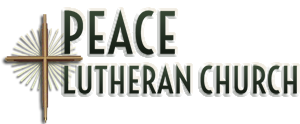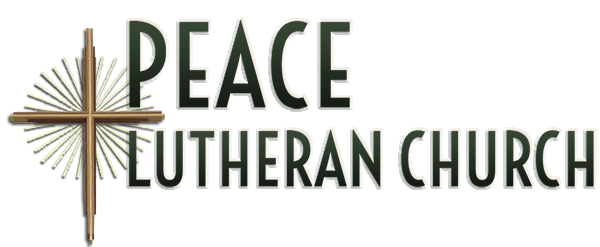THE SEVENTH SUNDAY AFTER PENTECOST–B
Pr. 11; LECTIONARY 16
July 19, 2015
Peace Lutheran, Grass Valley CA
THE FUNNIES:
Sitting by the window of her convent one evening, Sister Barbara opened a letter from her parents which contained a $100 bill.
Sister Barbara smiled at the gesture. While she read the letter, she noticed a shabbily dressed stranger leaning against the lamppost below her window. Quickly, she wrote, “Don’t despair!! Sister Barbara,” on a piece of paper, wrapped the $100 bill in it, got the man’s attention and tossed it down to him.
The stranger picked it up, and with a puzzled expression and a tip of his hat, went off down the street.
The next day, Sister Barbara was told that a man was at her door, insisting on seeing her. She went down and found the stranger waiting. Without a word, he handed her a huge wad of $100 bills.
What’s this?” she asked.
“That’s the $8,000 you have coming, Sister,” he replied. “’Don’t Despair’ paid 80-to-1.”
“BONUS FUNNY”
Did you hear about the pastor who fell asleep driving home one evening. He clipped a guardrail, but was uninjured.
His wife began to grill him when he got home. “Were you sleepy when you started out?” she asked.
“No.”
So what happened?
“Well, I was just driving along, going over my sermon….”
TEACHING POINTS:
- “Herd” of buffalo and a “flock” of sheep.
- Jeremiah’s speaks God’s judgment and promise.
- Jesus, the Good Shepherd serves the “herd” with compassion and teaching.
- Jeremiah’s Promise, “surely the days are coming”, is fulfilled for us.
THE MESSAGE:
On a family vacation in the Black Hills of South Dakota, our youngsters wanted to see if we could find a herd of buffalo. So we trekked out on the wildlife road of Custer State Park. Near the middle of the loop, we saw some dust in the air, so we pulled off on a road leading in that direction. Topping a hill, we saw a herd of buffalo making its way toward us. We stopped and watched in awe as those big wonderful beasts made their way up the hill until they surrounded us. We got an “up close and personal” view.
Looking back, I marvel at how that happened. And I marvel at might have been, if that herd had stampeded and ran spooked seeking self-preservation. A herd that, under the best of circumstances, is serene, organized and grazing, but, under the worst of circumstances, becomes something dangerous and destructive. When following their own wiles, the herd can become a jostling, pushing, shoving, scaring each other group gone mad, often going blindly to disaster.
It isn’t a great contrast and breaks down in many ways, but today I want to hold the idea of “herd” in contrast to a “flock.”
Sheep are flocking animals. They find safety in their flock. An article from the journal SHEPHERD states that when observed from the air, sheep seem to try to keep two other sheep in view at all times. Sheep follow other sheep, or they follow the shepherd. The shepherd’s strong leadership keeps the flock organized and adhering to flocking behaviors. This is not to say that sheep won’t become herds. They can and do get out of control when they follow their self-preservation instincts. But, my point here is to hold in contrast flocks— when organized under a leader—and herds – when disorganized and blindly going their own way to disaster.
The cultures of Jesus’ day held high regard for the image of flock. You see, “ruler” and “shepherd” were closely associated. In fact, the Hebrew word for “shepherd” means “ruler.” The Biblical image of “shepherd” contains the image of leading a flock so it doesn’t become a “herd”. So then, it as not by accident that David, the shepherd boy, was taken from following the flocks to being an under-shepherd of the Good Shepherd with responsibility for being King and ruler over the united kingdoms of Israel and Judah. Such interpretation gives us cause to be careful with our images of the “gentle shepherd.” You see, the true shepherd, the good shepherd, has to rule with some harshness and firmness in order to be sure that the flock is cared for, that the flock doesn’t become a herd.
This is what comes together, then, as we hear the “shepherd” thread in our readings. We have Psalm 23 and Jesus seeing the crowds “like sheep without a shepherd” – “Did that make them a herd?”, we might wonder. WE hear Jeremiah speaking God’s judgment upon a whole line of shepherd who had failed in their responsibility and allowed the “flock” to become a “herd”.
In this context, Jeremiah speaks God’s judgment. It was judgment because God’s people who had been a flock under a good and competent shepherd (like David) had now become a herd. Jeremiah is critical not of this resulting herd, but the series of shepherds, leaders and kings who had allowed the flock to become a herd.
You see, these weak and somewhat unfaithful shepherds, had allowed things to fall apart. The “flock” fell into rebellion with people going their own way, ignorant that they had a leader or falling into the disobedience of the ruler. What God had intended to be a flock had become a herd, a flock gone mad, on their way to self-destruction. For this, God’s judgment is upon the shepherd, not the herd.
In this then, there is the promise. There is hope. Jeremiah also brings God’s word that “the days are surely coming.” Days in which there will be a new shepherd king, an ideal king who will be a chip off the old block, a descendent of the line of David who will bring the flock behavior back to God’s kingdom. The day will come when there would be restoration to Israel, there would be a perfect shepherd of the sheep, one perfect in power, goodness and leadership.
As people of faith, followers of Jesus, we know that God has fulfilled God’s promise. God has sent to his “flock” the perfect shepherd, the “Good Shepherd”, in his son Jesus. God has provided, as God promised, one who tends the flock, guides God’s people, and serves as Lord and Savior, King and redeemer.
It is this very Jesus who looks on the crowds and sees “sheep without a shepherd.” He sees them in their need. Jesus’ response, as the Good Shepherd is to “have compassion on them and teach them.” You see, the Good Shepherd does what a shepherd does, tends to the flock with compassion to ease their anxiety and to move them back into flock behavior, safe under the shepherd’s care.
The day is surely coming, says the Lord, when I will raise up a new shepherd.
Those words echo in my spirit today as we close out this interim. These words echo hope and truth as we mark an ending of this interim time and stand on the threshold of a beginning. The promise of God, which was completely and perfectly fulfilled in Jesus, is being fulfilled in your midst again. The day has surely come when God HAS raised up a shepherd for his flock.
Now, let’s be clear. Jesus is the only perfect “Good Shepherd.” However, God in goodness raises up “under-shepherds” to tend to communities of faith. God raises up those who are called and sent to lead and guide and to respond to the flock with compassion.
My compliments to you, little flock. You have been a faithful flock in this interim. You have received with grace the care and compassion of your interim shepherds and elected leaders. You have been “shepherd” to each other as you’ve tended to each other and ministered to each other in joys and in sorrows.
During an interim like yours there it plenty of temptation to become a “herd” and to succumb to the fear of an interim time, to run scared, to trample each other in a wild stampeded.
But you didn’t. You stayed true to yourselves and people of Peace. You kept the course of your calling.
Now as God fulfills the promise to bring you a new “under-shepherd”, continue what you’ve learned, continue to be people of faith and people of peace who shepherd each other and are attentive to the wise shepherding of those God places among you to serve you.
Amen.


